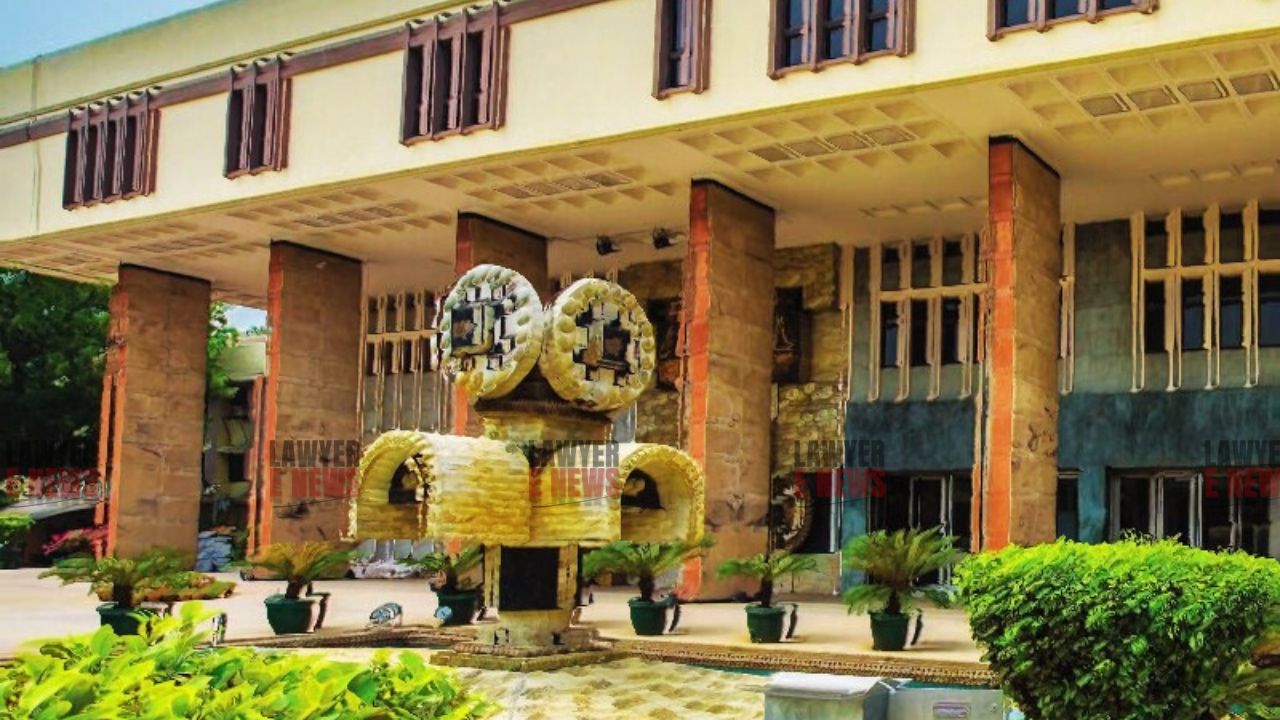-
by Admin
15 February 2026 5:35 AM



Delhi High Court dismissed the petitioner’s plea for bail under Section 439 of the Code of Criminal Procedure, 1973 (CrPC), despite the accused having been in judicial custody for over nine years. The Court emphasized that the severity of the double murder alleged and the petitioner’s extensive criminal history outweighed the argument of prolonged incarceration under Article 21 of the Constitution.
The case arose from an incident on August 25, 2015, where two undertrial prisoners, Vikram @ Paras @ Goldy and Pradeep @ Bhola, were allegedly strangled to death using gamchas inside a jail van while being escorted back to Tihar Jail from Rohini Court, New Delhi. The murders reportedly occurred in the presence of armed police guards. The petitioner, Neeraj Sehrawat, allegedly led the attack alongside other inmates.
The petitioner has a history of 28 criminal cases, including convictions for crimes committed while on bail, underlining a pattern of recidivism. A charge sheet under Sections 302 (murder), 120-B (criminal conspiracy), and 34 (common intention) of the Indian Penal Code (IPC) was filed against him.
The petitioner argued that his prolonged custody of over nine years violated his right to a speedy trial. Despite 79 prosecution witnesses being listed, only 32 had been examined, signaling delays in trial completion. The petitioner relied on landmark Supreme Court judgments, such as Union of India v. K.A. Najeeb and Sheikh Javed Iqbal v. State of Uttar Pradesh, which stress that prolonged incarceration without trial undermines personal liberty.
The State countered that the petitioner’s criminal antecedents, including multiple convictions for crimes committed while on bail, demonstrated a propensity for reoffending. The prosecution emphasized societal interests and public safety, arguing that granting bail could endanger public order.
The murders occurred in a secure environment (a jail van) under police supervision, indicating brazen criminality. The Court observed that the crime’s circumstances reflected a grave threat to societal safety.
The Court was tasked with balancing the petitioner’s fundamental right to liberty against the larger societal interest in deterring violent crimes and ensuring public safety.
The Court acknowledged that the petitioner had been in custody for over nine years but emphasized that “prolonged incarceration alone does not entitle an undertrial to bail in cases involving heinous crimes.” Justice Bhambhani clarified that while Article 21 protects the right to a speedy trial, delay in trial is only one factor among many that courts must consider.
The Court referred to Ranjan Dwivedi v. Central Bureau of Investigation and held that the length of delay must be weighed against the gravity of the offense, the complexity of the trial, and other relevant factors.
Gravity of the Offense and Recidivism Justify Bail Denial
The Court highlighted the “exceptional brazenness” of the double murder, which was committed inside a jail van under police supervision. It remarked, “The perpetrators of the crime were utterly uninhibited and intractable despite the presence of armed guards,” raising concerns about releasing the petitioner on bail.
Further, the petitioner’s involvement in 28 criminal cases, including three convictions for offenses committed while on bail, demonstrated a proclivity for repeat offenses. The Court relied on Ash Mohammad v. Shiv Raj Singh alias Lalla Babu and Neeru Yadav v. State of Uttar Pradesh to assert that criminal antecedents and the risk of recidivism are valid grounds to deny bail.
Societal Interest Overrides Individual Liberty
The Court balanced the petitioner’s right to liberty under Article 21 with the need to protect societal interests. It observed that in cases involving heinous offenses and habitual offenders, the larger interests of society must prevail over individual rights.
Quoting Masroor v. State of Uttar Pradesh, the Court stated:
“The valuable right of liberty of an individual and the interest of society in general has to be balanced. Liberty of a person accused of an offense would depend upon the exigencies of the case.”
While denying bail, the Court expressed concern over the inordinate delay in the trial and urged the trial court to expedite the proceedings. Justice Bhambhani emphasized that while bail was denied, the petitioner’s right to a timely trial under Article 21 must still be respected.
The Delhi High Court dismissed the bail plea, underscoring that the right to a speedy trial cannot override societal safety and the gravity of the offense. The Court observed that the petitioner’s criminal antecedents, combined with the heinous nature of the alleged crime, justified the denial of bail despite prolonged custody.
Date of Decision: January 15, 2025
